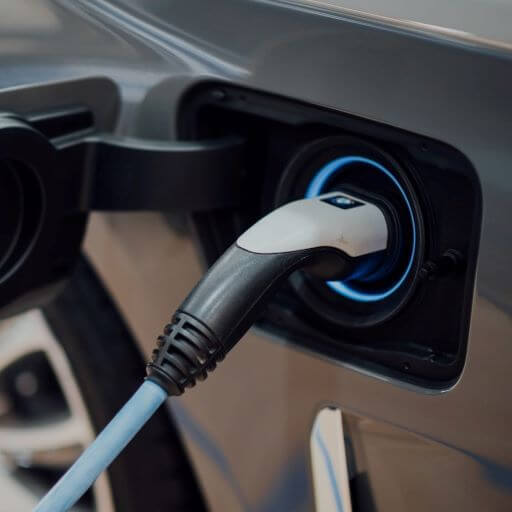
Also in today's EMEA regional roundup: Etisalat UAE turns to ADVA for uCPE; UK elected to ITU governing council; Nokia gets SaaSy.
Ericsson has issued a new report which, says the vendor, shows how cellular IoT connectivity can turbocharge the business case for providers of electric vehicle (EV) charging stations. The report analyzes a European, midsized EV charging company and found that it can expect a 40% revenue increase from using the technology thanks to the enhanced interoperability that brings it a share of revenue from its customers using other EV charging providers' stations. The report also reckons that use of cellular IoT will bring a 15% decrease in annual monitoring costs for EV charging providers, as remote monitoring saves on the time and expense of physical inspections. The Connected EV Charging report was produced in collaboration with EV charging provider Blue Corner, Orange Belgium and Arthur D. Little. Figure 1:
 (Source: Chuttersnap on Unsplash)
(Source: Chuttersnap on Unsplash)Etisalat UAE is now offering software-based universal customer premises equipment (uCPE) smarts to its corporate customers using ADVA's Ensemble NFV software and systems integration by NEC. According to ADVA, this gives businesses in 16 countries across the Middle East, Asia and North Africa access to on-demand virtual services.
The UK has been elected to the governing council of the International Telecommunication Union (ITU), securing 151 votes out of a possible 179. In a statement, the UK said it plans to use its membership "to ensure the ITU focuses on keeping information and communication technologies (ICTs) in the hands of industry and the free market and making sure they remain interoperable – benefiting UK technology businesses through access to the biggest possible global market."
Nokia is offering its fixed-networks applications on a software-as-a-service (SaaS) basis. According to Nokia, the SaaS approach reduces a company's dependence on IT services, and with a usage-based subscription can reduce the cost of ownership by up to a quarter.
Vodafone has launched what it claims is the UK's first Wi-Fi 6E Ultra Hub and Booster, which it says can connect more than 150 devices, should a household be mad enough to have that many connected devices on the go. The hardware is part of a package the operator is calling Vodafone Pro II, which it asserts is "the UK's fastest WiFi technology throughout the home."
Irish operator Eir wants the world to know that its FTTH network now passes more than 900,000 homes and businesses. Once complete, says Eir, this network will reach 84% of homes and businesses in the country. To maintain its fiber momentum, Eir is now looking for an additional 40 people to join its engineering apprenticeship scheme.
Across the Irish Sea, altnet CityFibre is rolling into Maidstone, a town about 40 miles southeast of London. Construction on the £50 million (US$56 million) network will begin in January.
Spotify, the Sweden-based music streaming service, has acquired Kinzen, a company that it has used to identify harmful content on the platform – Joe Rogan podcasts, U2 albums, that kind of thing. As Reuters reports, Dublin-based Kinzen has been working with Spotify since 2020.
UK converged operator Virgin Media O2 is responding to the cost-of-living crisis by giving all of its employees earning £35,000 or less a support allowance of £1,400 ($1,575) over the course of the next nine months.
— Paul Rainford, Assistant Editor, Europe, Light Reading
Read more about:
EuropeAbout the Author(s)
You May Also Like











